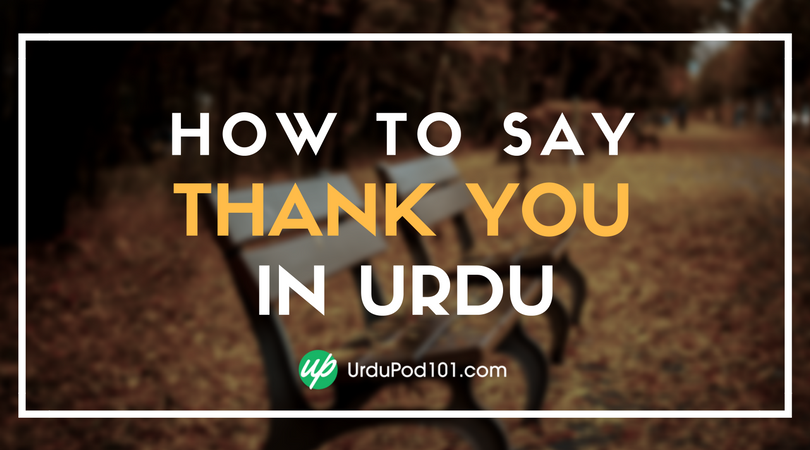
“Great is the art of beginning, but greater is the art of ending.“ – Henry Wadsworth Longfellow
If you’ve been keeping up with our blog, you’ve already studied How to Say Hello in Urdu and How to Introduce Yourself in Urdu. That’s a great place to start! But there’s one more thing you need to start having smooth interactions with native speakers: a good understanding of how to say goodbye in Urdu.
In every culture, there are several different ways to say goodbye to someone depending on the context. Knowing which words and phrases are most appropriate for a given situation is crucial in effective communication, and doing so will make your speech more fluent.
While learning how to say goodbye in Urdu, keep in mind that in Pakistan, people respect and appreciate the strong emotions that may come when parting ways. If you’ve made a good friend during your trip, don’t be afraid to express that you’ll really miss them when you leave; on the other hand, though, you shouldn’t be too melodramatic about your departure.
In this article, UrduPod101.com will teach you how to say goodbye in Urdu like a native, in both formal and casual situations. Let’s get started! Start with a bonus, and download the Must-Know Beginner Vocabulary PDF for FREE!(Logged-In Member Only)
 Table of Contents
Table of Contents
- The Most Common Urdu Goodbye Phrases – Take Your Pick!
- Saying Goodbye in Casual Situations
- Good ___.
- See you ___!
- Sentimental Farewells
- Saying Goodbye in a Hurry
- Keep in Touch
- Saying Goodbye Over the Phone or Via Text
- Just a Few More…
- Pakistani Culture: Gestures for Saying Goodbye
- Conclusion
1. The Most Common Urdu Goodbye Phrases – Take Your Pick!

Are you worried that you’ll use the wrong phrase when it comes time to say goodbye in the Urdu language? If so, we have good news. You can simply opt for any of the following Urdu expressions:
- اللہ حافظ (Allah Hafiz) – “May God Protect”
- اسلامُ علیکُم (Assalam-o-Alaikum) – “Peace be upon you”
- الوداع (alwida) – “adieu” / “goodbye”
Each of these phrases is versatile in that you can use them in any context, whether you’re leaving an office meeting or a bonfire party with friends.
Here’s an example of how to use that last Urdu word for goodbye in a sentence:
- الوداع، اپنا خیال رکھئے گا۔ (alwida, apna khayal rakhiye ga.) – “Goodbye, take care of yourself.”
Remember that اپنا خیال رکھئے گا (apna khayal rakhiye ga), meaning “take care of yourself,” is always a good expression to use in tandem with other goodbye phrases in Urdu.

2. Saying Goodbye in Casual Situations
Now that you’ve learned a few generic phrases, let’s look at how to say goodbye in more casual situations. These are phrases that you would use to wish your close friends or family members well upon leaving. We’ll cover everything from slang expressions to terms of affection! Note that many of these phrases are gender-specific, meaning that you’ll say them differently depending on your gender; we’ve marked these with [brackets].
- اللہ کے حوالے (Allah kay hawalay) – “Entrusted to God”
- میں جا رہا ہوں.۔ (mei ja raha hun.) – “I am leaving.” [if you’re a man]
- میں جا رہی ہوں۔ (mei ja rahi hun.) – “I am leaving.” [if you’re a woman]
- چلتا ہوں (chalta hun) – “I beg to leave.” [if you’re a man]
- چلتی ہوں (chalti hun) – I beg to leave.” [if you’re a woman]
- لیجیے،میں نِکلتا ہوں۔ (lijiye, mei nikalta hun) – “I must leave now.” [if you’re a man]
- لیجیے،میں نِکلتی ہوں۔ (lijiye, mei nikalti hun) – “I must leave now.” [if you’re a woman]
- خدا حافظ (khuda hafiz) – “May God protect you.”
- تو ٹھیک ہے،میں چلوں؟ (to theek hai, mei chaloon?) – “Alright, should I leave?”
You probably noticed that some of these phrases sound a bit odd when translated. This is because they’re idiomatic expressions used in Urdu that don’t really translate well. Once you get used to them, though, using them in your conversations will make your speech sound more natural.

3. Good ___.
When parting ways in Urdu, it’s customary to wish the other person well as this is a symbol of concern and care. Natives will always take kindly to your gesture of saying goodbye with good wishes.
- صبح بخیر (subha bakhair) – “Good morning.”
- شب بخیر (shab bakhair) – “Goodnight.”
- شام بخیر (shaam bakhair) – “Good evening.”
- دعا ہے کہ آپ کا ٓــــــــــــ اچھا گذرے (du hai ka aap ka _____ acha guzray.) – “I pray you have a good ______.”
In that last phrase, you may fill in the blank with any word that suits the situation. For example, you can choose a time-related word:
- دن (din) – “day”
- ہفتہ (hafta) – “week”
- مہینہ (mahina) – “month”
- سال (saal) – “year”
- وقت (waqt) – “time”
4. See you ___!
The English phrase “see you” can be translated as ملتے ہیں (milty hain) in Urdu.
Using this structure allows you to express your hope of meeting someone again, and can even make a departure less painful.
- بعد میں مِلتے ہیں۔ (baad mein milte hain.) – “See you later.”
- پھر مِلتے ہیں۔ (phir milte hain.) – “See you again.”
- تھوڑی دیر میں مِلتے ہیں۔ (thodi der main milte hain.) – “See you in a short while.”
- اگلی دفعہ ملتے ہیں۔ (agli dafa milte hain.) – “See you next time.”
- پھر کبھی ملتے ہیں۔ (phir kabhi milte hain.) – “See you some other time.”
- ــــــ کو ملتے ہیں۔ (______ ko milte hain.) – “See you on _______.”
For that last phrase, you simply fill in the blank with a specific day of the week or a date. If you want to specify a particular time, you may use the following sentence pattern, filling in the blank with the exact time.
- ــــــ بجے ملتے ہیں۔ (______ bajay milte hai.) – “See you at ______.”
5. Sentimental Farewells
Have you made a lifelong friend, and you’re hesitant to finally part ways? Wish them a sentimental farewell with one of these phrases, and warm their heart!
- میری نیک تمنائیں آپ کے ساتھ ہیں۔ (meri naik tamannayain aap kay sath hain.) – “My good wishes are with you.”
- آپ کے نصیب اچھے ہوں۔ (aap kay naseeb achay hon.) – “May you have good luck.”
- دعاؤں کے ساتھ رخصت کرتا/کرتی ہوں۔ (duaon kay sarh rukhsat karta/karti hun.) – “I say farewell with prayers.”
Always remember to use کرتا ہوں (karta hun) for males and کرتی ہوں (karti hun) for females in your conversations.
- دعاؤں میں یاد رکھئے گا۔ (duaon mein yaad rakhiya ga.) – “Remember me in your prayers.”
- آپ یاد آؤ گے/گی۔ (aap yaad aao gay/gi.) – “I will miss you.”
In that last sentence, you must remember to use the correct gender case. For the masculine case, you’ll use آؤ گے (aao gay); for the feminine case, you’ll use آؤ گی (aao gi).
6. Saying Goodbye in a Hurry
When you’re running short on time and can’t afford to ask for formal permission to leave, you can always go against convention and get out of the situation at once. Here are some Urdu goodbye phrases you can use for this purpose:
- مجھے جانا ہے۔ (mujhe jana hai.) – “I have to go.”
- میں جلدی میں ہوں۔ (mei jaldi mei hun.) – “I am in a hurry.”
- ضروری کام آن پڑا ہے۔ (zaroori kaam aan parha hai.) – “It’s very urgent.”
- اجازت چاہتا/چاہتی ہوں۔ (ijazat chahta/chahti hun.) – “I ask for your permission.”
Once again, be mindful and use the correct gender case. To be precise: for the masculine case, use اجازت چاہتا ہوں (ijazat chahta hun); for the feminine case, go with اجازت چاہتی ہوں (ijazat chahti hun).

7. Keep in Touch
No doubt, courtesy demands that you show your care for the other person when saying goodbye, and let them know you’d like to see them again. Here are some different ways to say goodbye in the Urdu language, without saying goodbye forever.
- رابطے میں رہیے گا۔ (rabte mei rahiye ga.) – “Stay in touch.”
- آپ کا انتظار رہے گا۔ (aap ka intezar rahe ga.) – “We’ll be waiting.”
- میں آپ کے ـــــــــ کا منتظر رہوں گا/گی۔ (mei aap ke ____ ka muntazir rahun ga/gi.) – “I will be waiting for your _____.”
To fill in the blank space, you can mention anything that you’re going to be waiting for (such as an email, letter, message, or call). Remember that if the speaker is a man, he will say رہوں گا (rahun ga); if the speaker is female, she will say رہوں گی (rahun gi).
8. Saying Goodbye Over the Phone or Via Text
To prepare you for phone call and text message goodbyes, let’s go through the following Urdu sentences and phrases.
- پھر بات ہوتی ہے۔ (phir baat hoti hai.) – “Talk to you later.”
- پانچ منٹ بعد بات کرتے ہیں۔ (panch minute baad baat karte hain.) – “Talk to you in five minutes.”
- اجازت دیں۔ (ijazat dain.) – “Allow me to leave.”
- رخصت چاہتا/چاہتی ہوں۔ (rukhsat chahta/chahti hun.) – “Let me leave now.”
As the quick learner you are, you probably know what I’m going to say next: For the masculine gender, you’ll use چاہتا ہوں (chahta hun), and for the female gender, you’ll opt for چاہتی ہوں (chahti hun).
Here’s one more phrase:
- جلد بات ہوتی ہے۔ (jald baat hoti hai.) – “Talk to you soon.”

9. Just a Few More…
All of the phrases we covered above are great for everyday use. But there are a few more you should know to make your Urdu speech sound even more natural!
- آپ جا سکتے/سکتی ہیں۔ (aap ja sakte hain.) – “You can go.”
- دروازہ کھلا ہے۔ (darwaza khula hai.) – “The door is open.”
- ہم آپ کو نہیں روکیں گے۔ (hum aap ko nahi rokain gay.) – “We will not stop you.”
- آپ کے آنے کا شکریہ۔ (aap kay aney ka shukriya.) – “Thank you for coming.”
- آپ کے تعاون کا شکریہ (aap ke taawun ka shukriya.) – “Thank you for (your) cooperation.”
10. Pakistani Culture: Gestures for Saying Goodbye
Language and culture are intertwined. As a non-native Urdu-speaker, you have the additional burden of becoming acquainted with the Pakistani cultural nuances, as well as the language itself. So in addition to learning the common expressions in this article, you must learn the culture-specific gestures that go with them!
We won’t go too much into detail here, but there are a few things you should keep in mind:
- Handshakes: Handshakes are acceptable, though only between people of the same sex.
- Hugs: Like handshakes, hugs are generally acceptable, but only between people of the same sex.
- Kisses: In some cultures, it’s normal to blow a kiss to someone, or even kiss them on the cheek, upon leaving. But this is not the case in Pakistan; you should avoid kisses altogether, as such a touch can be mistaken as an unwarranted sexual advancement.

11. Conclusion
In this article, we’ve covered everything you need to know about saying goodbye in Urdu. After learning these basic vocabulary words, sentence patterns, and cultural insights, you should have a much better idea of what to expect when parting ways in Pakistan.
Do you feel ready to say goodbye in the Urdu language? Or do you still have a question about something? Let us know in the comments, and we’ll be glad to help!
In the meantime, keep exploring UrduPod101.com. We are a rich repository of Urdu learning resources, and we aim to provide you with the information and support you need to achieve your goals. If you’re not sure where to start, we have some free vocabulary lists and an Urdu-English dictionary to check out!
Very Happy Urdu Learning!










